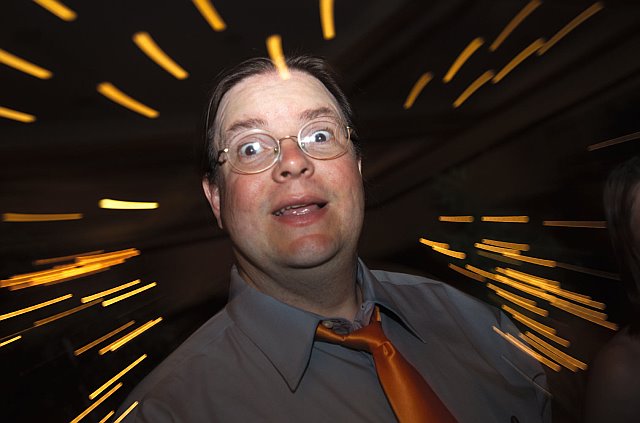God Is a Bullet

What is perhaps most tragic about the latest gun rampage is not the number of victims or the scale of the shooter's inhumanity, but how accustomed we've all become to stories like this. You can pretty much figure out the details even before they're revealed--slowly, delicately, like folding back the skin on an autopsy--on the cable news channels, which confront the tragedy with all the delicacy of a slavering dog: emotionally disturbed man (whether from a failed relationship or an abusive past or school bullying) loads up on guns and ammunition, works out the details of his plans days or weeks in advance on notebook paper, records or writes his defense in advance of the trial he never intends to see, and heads out to the focal point of all his rage and perceived neglect. The destinations have become irrelevant--Amish schoolhouse, high school cafeteria, interstate highway, or college dormitory--and the victims only faces in a continual parade of people-in-the-wrong-place-at-the-wrong-time. We might mourn them, if only to reassure ourselves that we could not be them.
Be we could and, in light of the frequency and increased body count of these kinds of events, we will. Eight years ago, I was in Denver attending a Star Wars convention, and took an afternoon to visit the still-smoldering grounds of Columbine with a few friends. The atmosphere of sorrow, anger, and humility was oppressive. That upper-class high school had become the country's largest mortuary. I felt like my presence was an intrusion into a very private area of mourning that I could never comprehend.
That was back in the days when school shootings were still relatively novel occasions. Now they are as comfortable and familiar to us as the latest car bombing in Iraq or the next revelation about the Bush administration's violations of civil rights--blips on a vomitory green radar of violence and apathy, raisins in our breakfast of streaming news headlines.
My students wanted to discuss nothing else today. For most of the last semester, we have been discussing acts of terror and the way events like 9/11 shake us out of our cultural complacency, helping us to realize the consequences of our government's policies. It is challenging to them to think of the collapse of the World Trade Center towers as anything but horrific, and they are right. But in another sense, I think they can see how 9/11 was a choice offered to us.
So, on a lesser scale, are these shooting rampages. But unlike 9/11, we are presented with this choice on a regular basis. And we choose to do nothing. We stand at attention before the news pundits for a few days, before our attention is distracted by another car bombing, or the death of a celebrity. And we move on, pretending to be surprised when the next shooting drops into our laps. A few months ago, it happened at a shopping center I was familiar with, a place where I had gone on dates and seen movies. How much closer could it get? I thought to myself at the time. Today, I found myself telling my students to be aware of their surroundings, and to scope out their classrooms for escape routes. That is something I never thought I would feel the need to do.
Within the next few days or hours, I'm sure we will hear the cries of offended NRA members, who will reassure us that gun ownership is a God-granted right of our country, that armor-piercing bullets and high-powered rifles are what make us great, and that any attempts to restrict their sale or register their ownership is akin to treason. Meanwhile, with nary a peep of rebuttal, the Bush administration will continue its deliberate and well-organized campaign of removing our true freedoms, all in the name of security and patriotism.
The blustering of the gun-nuts will be followed, I am sure, by calls for increased screening of immigrants and non-American students in our colleges and universities. Then will come the TV dramatizations; another powerful episode of Law and Order, perhaps. And by then, the cycle may have begun again.
It is a disease. Our love of violence and death has metastasized into a life-threatening cancer. Is love too strong a word? Perhaps willful apathy is more appropriate. However we justify our lack of direct response, the results are the same. The shootings become familiar, routine, expected. The bar might be raised, as it was this time in Virginia, but it will prompt no new action, no reconsideration of our lifestyles, our willingness to bow before the political capital of the NRA, the neocons, the Toby Keiths. Our culture, our nation, is not only sick. It is terminal. We await the arrival of the next gunman with a kind of resignation, and relief.
ADDENDUM: From the Washington Post: "VA Killings Widely Seen as Reflecting a Violent Society."


